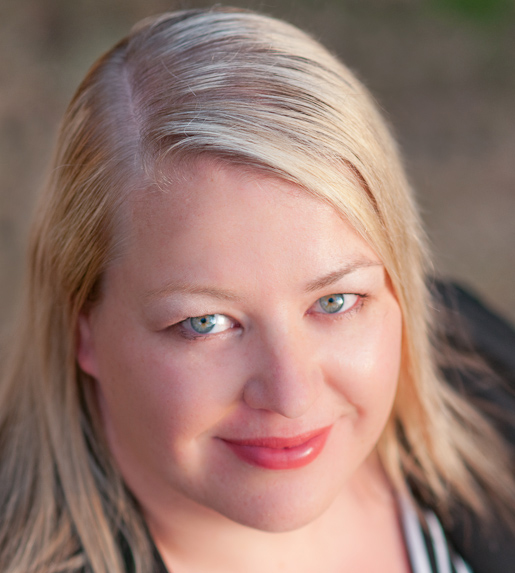BRAZEN
★ ★ ★ ★
#NotAllMen is #NotMyProblem

By Melanie Schoo
Often, it seems like any step towards progress for one group is swiftly followed by blowback from other groups who feel that this progress somehow impedes upon their rights. About 5 seconds after #BlackLivesMatter became a rallying call, #AllLivesMatter popped up. I am yet to get through an International Women’s Day without being asked when International Men’s Day is (19th of November FYI) and in Australia, White Ribbon, the national initiative to prevent violence against women is regularly attacked for not caring about violence against men.
This isn’t just linked to viral campaigns. As someone who worked in fundraising for over a decade, I’ve heard a counter-argument for everything: Why are we helping disadvantaged people overseas when there are hungry people/farmers living in drought/pensioners freezing? Why are we funding research into X Cancer instead of Y Disease? It’s endless and seems to be borne of the underlying feeling that those speaking up need to know their place and be quiet lest their activism cause other people to feel uncomfortable. There’s also the belief that progress or support of one thing, means less is left for everyone else. In my experience, activism usually starts, and ends, with a whinge.
Very few people who complain about Australia’s foreign aid budget are actively involved in supporting improved homelessness and social welfare services. None of the men who have asked me when International Men’s Day is have ever managed to Google the answer themselves, nor, once informed of the date, do they organise or attend any activity celebrating all that is glorious about men.
Which brings us to the mother, or should I say father, of all ‘What about me?’ hashtags—#NotAllMen
In the last 12 months, the rise of women speaking out, whether it be about pay equality, sexual assault, or reproductive rights, has been immediately followed by men feeling upset that they’ve been unfairly associated with those that have done the wrong thing.
I can understand their frustration, being lumped in with undesirable, and often illegal, traits and behaviours just because of your gender and your socio-economic status is really upsetting.
The #MeToo and #TimesUp movements are less than a year old. If men’s groups are uncomfortable with the recent focus on women’s rights, then imagine how women have felt for the last 15,000 years.
This excellent piece by the ABC showcases some of the discomfort experienced by everyday Aussie blokes, and the rather brilliant response by social commentator, Jane Caro.
At some point in the last few months, my husband (who is generally very wonderful) responded to one of my frequent rants with an exasperated, “Look I get it, but you know that not all men are like this, right?” In the interest of marital harmony, we didn’t unpack that statement any further at the time, but less than a week later, there was an opportune time to respond.
We were at a small party. There were about 30 people there, most of them able-bodied and aged between 50 and 60, with the gender evenly split. Throughout the evening, almost all the men sat at one table. When they went to get fresh drinks or food, they didn’t take away their rubbish; they just let it build up. At the same time, most of the women spent the evening looking into everyone else’s comfort; clearing rubbish, taking around food and platters, doing dishes and checking in with the organiser, also a woman.
Without anything being said, the role of the women at the party was to facilitate the comfort of everyone else and the role of the men was to enjoy themselves.
When it came time to pack up, all the men (except for my brilliant and beautiful husband) stayed where they were, as women cleared the rubbish from directly in front of them, packed up chairs and moved heavy tables. I pulled him aside, “Hey, when you say ‘not all men’, don’t say it to me, say it to the men who are making you look bad.” He sighed and walked over to the men and encouraged them to help out, which they did—making twice as much noise and heartily congratulating themselves afterwards.
Demonstrations of ingrained sexism and inequality aren’t always about sexual harassment. It’s the day-to-day stuff that impacts all of us and the opportunities to stand up and be a good guy don’t start and end with not being Harvey Weinstein.
The women’s rights movement isn’t about labelling all men as rapists and chauvinists, or women completely dominating every space and oppressing men. It’s about addressing the massive inequality and sexism ingrained in society, and we all have a responsibility to do that and to call out those that aren’t doing the right thing.
There are lots of good men out there. I am grateful for what they bring to my life and how they enrich my community, but they need to direct their frustrations about other men behaving badly to another department.
There’s no benefit in a woman screaming at a men’s rights activist—trust me, been there, done that, got the hate mail. This is to the good guys: we don’t need you to rescue us, but we need you to do something more helpful than point out that you’re not a bad guy.
If you believe that the poor behaviour of other men reflects badly on you, don’t resent, blame, or complain to women. We’ve got our hands full right now.
Instead of shouting down the women’s rights movements, channel your frustration into meaningful action. Call out people who behave inappropriately, stand up to those whose behaviour disrespects, demeans or degrades women and for bonus points, do it without expecting praise.
Behind the landmark moment of resistance, there are a million small actions that lead up to it and maintain momentum after the hashtags disappear. If you want to be a good guy, this is how you can make a difference.

Melanie is a communications professional who has worked in the not-for-profit sector for more than 15 years. A reformed social media addict, she has been condemned, attacked, and blocked by most right-wing tabloid journalists for being a “rabid leftie feminist social justice warrior”. She has a pair of 24-year-old Doc Martens, a fondness for Harry Potter and some very spoilt pet poodles. She lives in Melbourne, Australia.

DEAR READER
At The Wild Word we are proud to present some of the best online writing around, as well as being a platform for new and emerging writers and artists.
If you have read the work in The Wild Word and like what we do, please put something in our tip jar.
THANK YOU FOR YOUR SUPPORT!
























YES! All of the YES!
Xxxxx
So true x
Great article!
Fantastic!